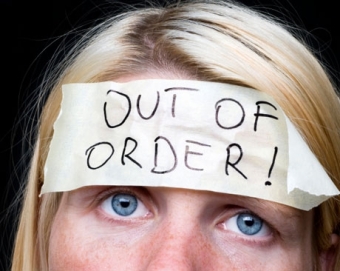But what happens when caregivers burnout? How do we rekindle the flames of love when the embers are dying of physical and mental exhaustion? Whether you are a parent caring for a child, a child caring for a parent, a healthcare worker, teacher, or anyone providing care for other beings, you are asked to meet another’s challenge over and over again. What helps you to keep your heart open and interested in their stories?
At our recent Physician Wellbeing retreat, we were fortunate to have Dr. Rachel Naomi Remen, author of Kitchen Table Wisdom and My Grandfather’s Blessings as our keynote speaker. She talked about burnout, and referred to compelling research by Dr. Tait Shanafelt from Mayo clinic. According to Dr. Shanafelt, burnout correlated strongly (and inversely) with one's capacity to find meaning. Physicians who spent more of their time experiencing their work as a "calling" (rather than a "job" or "career") were less likely to burn out. "Calling" was identified in the study by measuring how often the work was experienced as a pursuit of core values and infused with meaning, or "making a difference" (rather than as a means of making money, or advancing one's own success in life).
To consider my work a calling, to find meaning in my personal and professional relationships, I need to slow down and recognize that suffering is occurring (mindfulness). Next, there has to be some desire to offer comfort and care (kindness). Finally, I must recognize that it is part of a universal human experience (shared humanity). This three pronged approach to compassion is well defined in Dr. Kristen Neff’s work with self-compassion. The self part implies that we are able to meet our own suffering with kindness, understanding, and acceptance instead of self-criticism and judgment.
If you are overwhelmed by suffering (chronic exposure to a child with special needs, an ill parent, patients, clients, students) without any respite for rest and self-care, it’s hard to remember compassion, even self-compassion. It’s no wonder as caregivers we often go into fight-flight-freeze mode as our survival instincts kick in. We totally forget the tend and befriend response to others and ourselves. How can we remember that this option is always available to us 24/7?
As a caregiver, I ask myself the following questions. How do I want to give? How much do I have to give? Why do I want to give? Holding the title of physician and working at an organization require that I show up at each patient visit and give a certain way. But the how, how much and why are all up to me. I also listen to my body – taking those bathroom, snack, and hydration breaks when I need to, retreating to my office or the nearest window in the building when I need to take few cleansing breaths and look outside for a wider perspective. When I’m not working, I try to engage in self-care practices that are meaningful to me, that refuel my compassion tank.
When a patient sees me for fatigue, we discuss diet and lifestyle, and investigate any medical conditions that might be contributing to their condition. I’m surprised at how often a person is burnt out by some aspect of overextension in caring for others and total self-neglect, especially women. It’s as if we are sprinting each day for the finish line, forgetting that the journey might be a longer marathon than we have anticipated. We must pace ourselves, stopping long enough to hydrate, eat, sleep, notice, and appreciate what we are passing along the way.
In order for me to receive stories from my patients, family, friends, and even strangers like thoughtful letters instead of junk mail, I must be present. I need to slow down, notice, care, and find some common ground with this being. Their story could be my own. If I bypass this possibility, I run the risk of dehumanizing them. We all do.
Waking Up
When your thoughts are in knots
and your scalp hurts from tension,
it helps to detangle with a comb,
a brush, the breath, this heart.
Only tenderness can separate
the strands of confusion, changing
the to do list into the to be list,
noticing his callused hand on your belly,
firm and reassuring
or the outline of morning light
against the blinds-
a kind invitation to a new day,
a new way of relating to yourself,
the sun rising inside you
to warm the hearts of others.
You can rekindle the flames of love when the embers are dying of physical and emotional fatigue. By pausing and asking yourself what you need, you can relate to yourself in a new way, the sun rising inside you to warm the hearts of others. You cannot give from an empty place. Please take care of yourself, so you can take care of others.
There are many ways to care for yourself. Self-compassion is just one way. For more information on this practice, please visit the following sites:
http://self-compassion.org/
http://www.mindfulselfcompassion.org/mscprogram.php
http://www.centerformsc.org/teacher-and-program-directory

 RSS Feed
RSS Feed